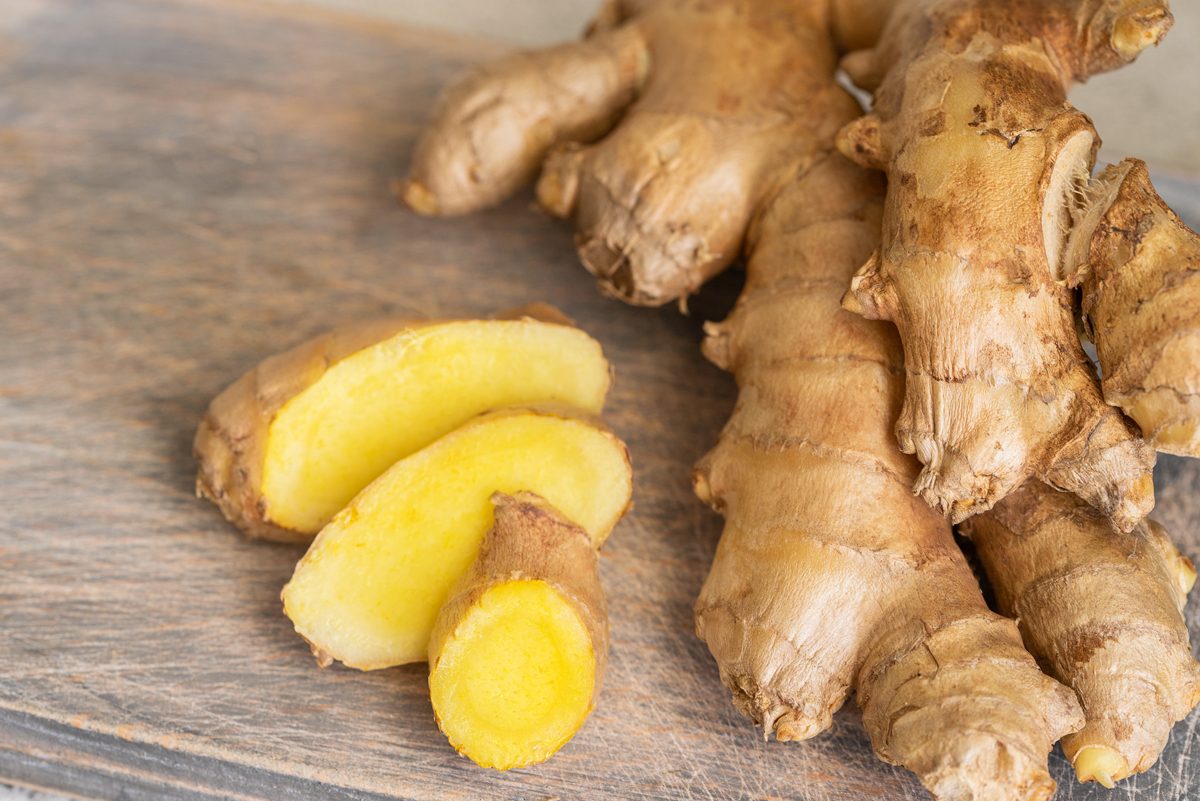
Ginger is popular year-round for the zippy flavor it adds to sauces and marinades as well as its soothing addition to tea and other beverages. It also happens to be incredibly popular with the holiday season since it's the star of so many treats and drinks. From gingerbread cookies to spicy ginger punches, it's one ingredient that smells and tastes like the holidays.
"Fresh ginger is popular in many holiday dishes (i.e. fresh cranberry sauce) because it provides a bright and pungent flavor that pairs well with the heavier foods often found at the holiday table," says Whitney Linsenmeyer, PhD, RD, LD, spokesperson for the Academy of Nutrition and Dietetics, and Assistant Professor of Nutrition at Saint Louis University. "Dried ginger is popular in many holiday baked goods (i.e. gingerbread, spice cake) because it pairs with the warm baking spices we often use together (i.e. cinnamon, cloves, cardamom)."
Ginger is a rhizome which is the underground part of a stem. And the most common forms of ginger for cooking are fresh ginger (found at most grocery stores) and dried ginger (found in the dried spice aisle), says Dr. Linsenmeyer. It's also common in tea blends or in crystallized form for baking.
But whichever way you use and consume it, ginger can actually have some pretty interesting (and surprising) side effects. Here are 6 side effects of eating ginger, according to dietitians. Read on, and for more on how to eat healthy, don't miss 7 Healthiest Foods to Eat Right Now.
It can help improve digestion and relieve nausea.
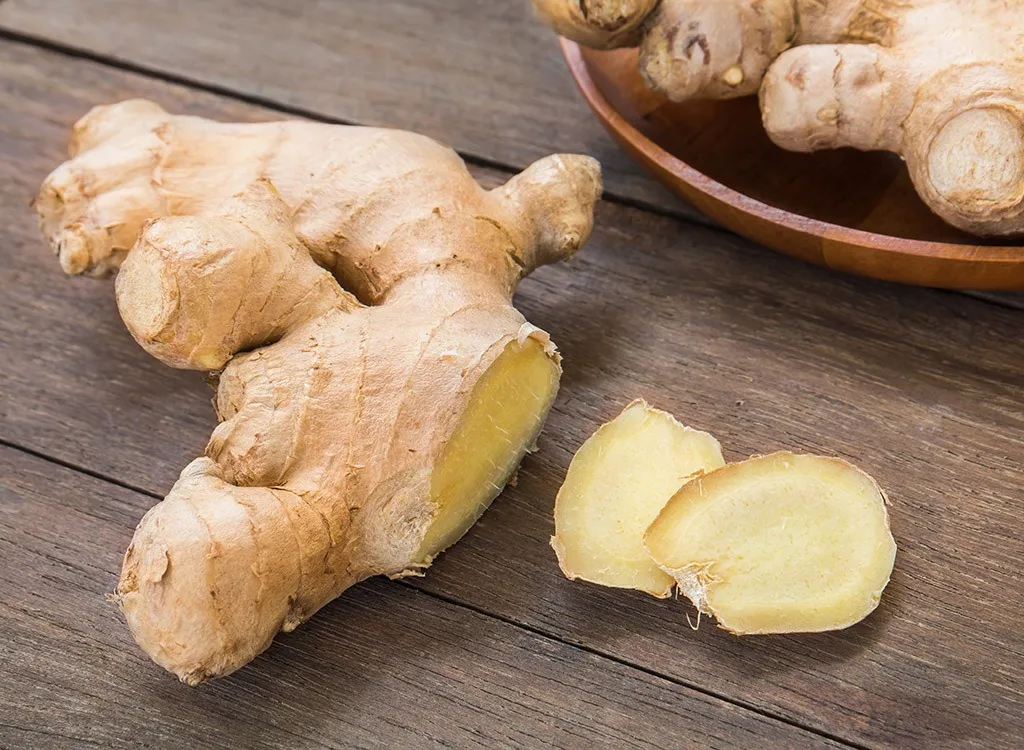
"Ginger has been shown to help to improve gastric motility, which basically means it can help with the movement of food from your mouth to the large intestine so that you have less gas and bloating," says Amber Pankonin, MS, RD, registered dietitian, and owner of food blog the Stirlist.
It may cause mouth and throat irritation when consumed in large doses.
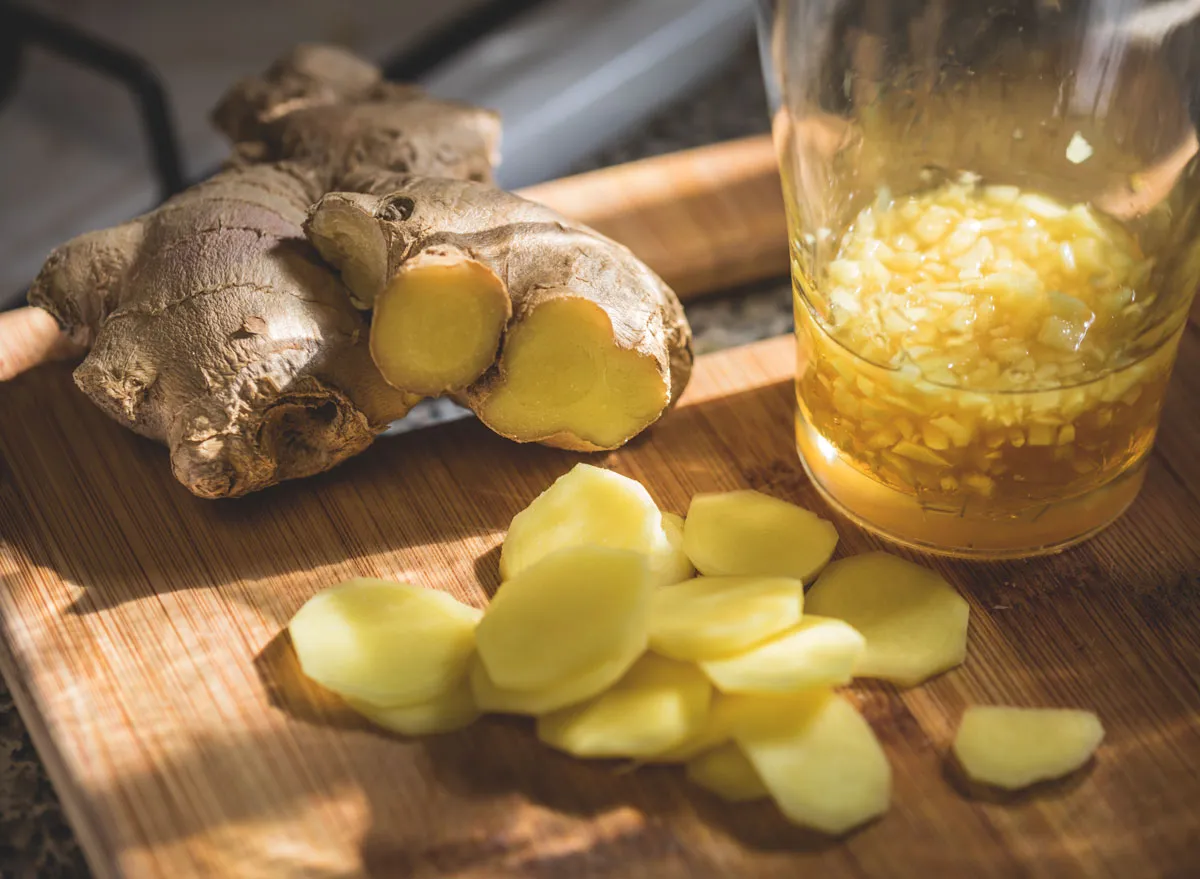
Ever feel that tingly sensation after eating pineapple? You may experience a similar effect when you eat ginger. "The active compounds that provide health benefits may also irritate the mucosal lining of the mouth and throat," says Dr. Linsenmeyer. "Fresh ginger is often described as 'pungent' or 'spicy', which can be perceived as somewhat powerful or painful, especially for those not used to the flavor."
It might provide relief from menstrual cramps.

Listen up, ladies! "In addition to reducing inflammation, there has been some research to show that ginger could be effective in decreasing pain during the first 3-4 days of a menstrual cycle," says Pankonin.
It might help reduce pain and inflammation.
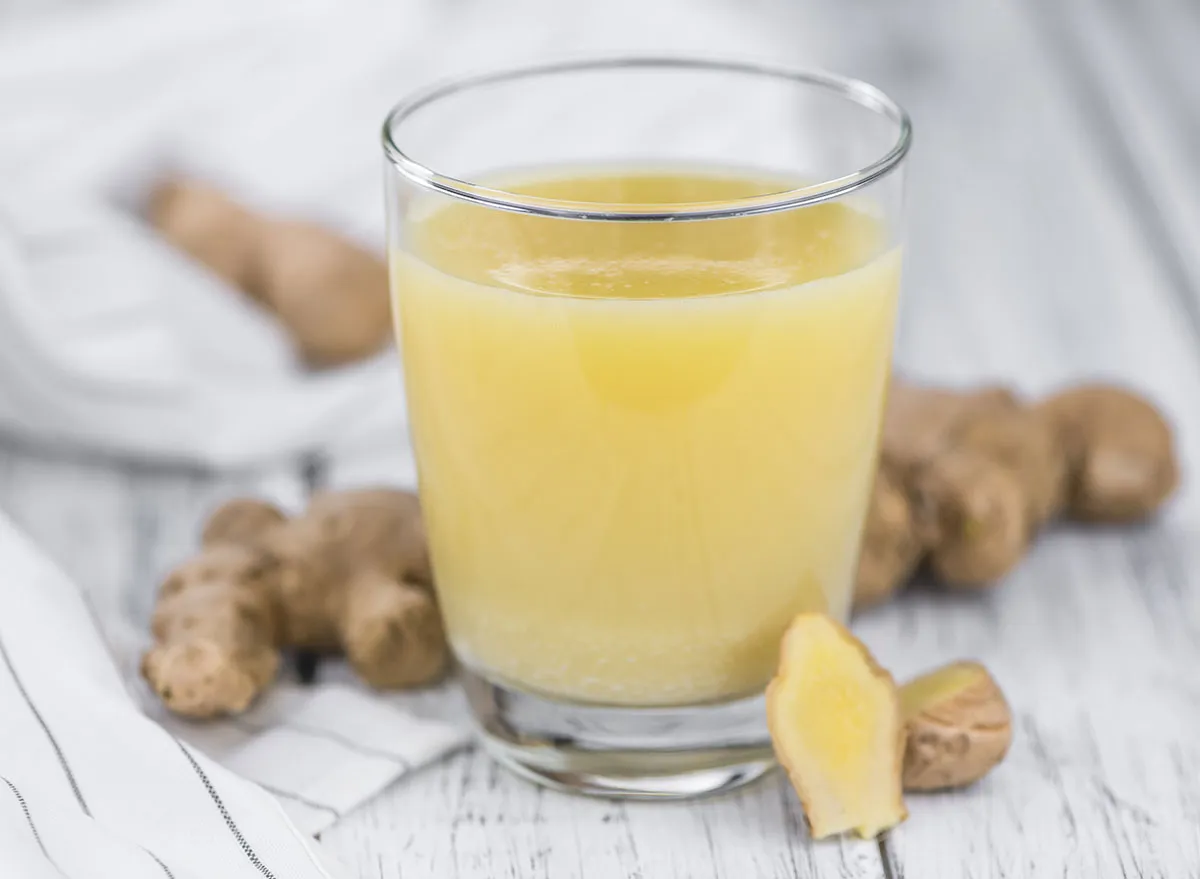
"This might be helpful for those with joint pain or arthritis throughout the holiday season," says Pankonin. "Ginger contains gingerols and shogaols, which could help decrease inflammation related to their anti-inflammatory properties."
It may support weight loss in those that are overweight or obese.

"The mechanism is not fully understood, but generally the thinking is that ginger is rich in naturally-occurring plant chemicals that function as antioxidants and are anti-inflammatory (which is known to cause weight gain and make losing weight more difficult)," says Dr. Linsenmeyer.
READ MORE: The Verdict on the Best Weight Loss Foods to Eat Every Day
Ginger supplements may cause gastrointestinal distress.
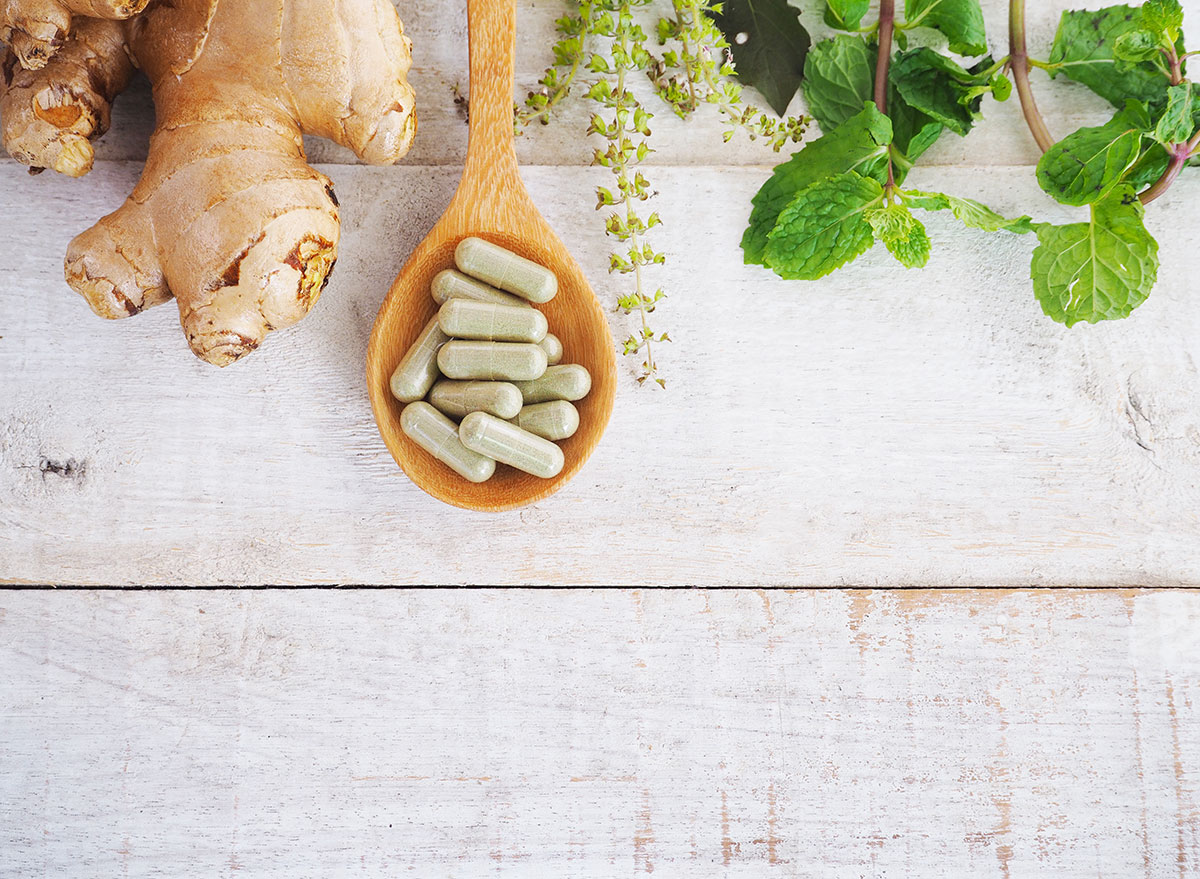
"Although ginger supplements are considered relatively safe, high doses may cause unwanted symptoms such as gastrointestinal distress (stomach cramping, bloating, gas)," says Dr. Linsemeyer. "The active compounds that provide health benefits may also cause gastrointestinal distress when consumed in high doses, typically in dietary supplement form versus whole food form."
Read this next:








